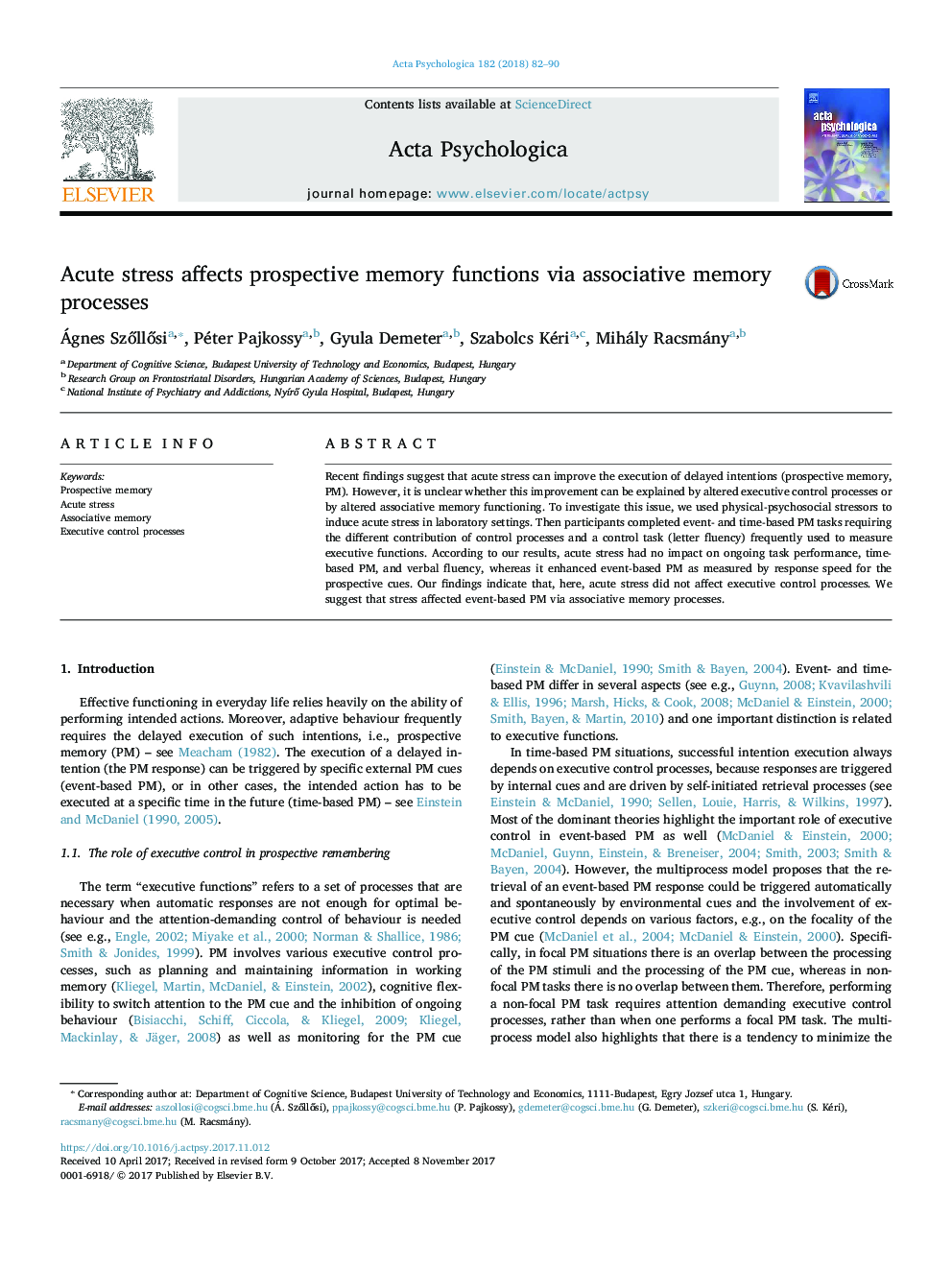| Article ID | Journal | Published Year | Pages | File Type |
|---|---|---|---|---|
| 7276878 | Acta Psychologica | 2018 | 9 Pages |
Abstract
Recent findings suggest that acute stress can improve the execution of delayed intentions (prospective memory, PM). However, it is unclear whether this improvement can be explained by altered executive control processes or by altered associative memory functioning. To investigate this issue, we used physical-psychosocial stressors to induce acute stress in laboratory settings. Then participants completed event- and time-based PM tasks requiring the different contribution of control processes and a control task (letter fluency) frequently used to measure executive functions. According to our results, acute stress had no impact on ongoing task performance, time-based PM, and verbal fluency, whereas it enhanced event-based PM as measured by response speed for the prospective cues. Our findings indicate that, here, acute stress did not affect executive control processes. We suggest that stress affected event-based PM via associative memory processes.
Related Topics
Life Sciences
Neuroscience
Cognitive Neuroscience
Authors
Ágnes SzÅllÅsi, Péter Pajkossy, Gyula Demeter, Szabolcs Kéri, Mihály Racsmány,
